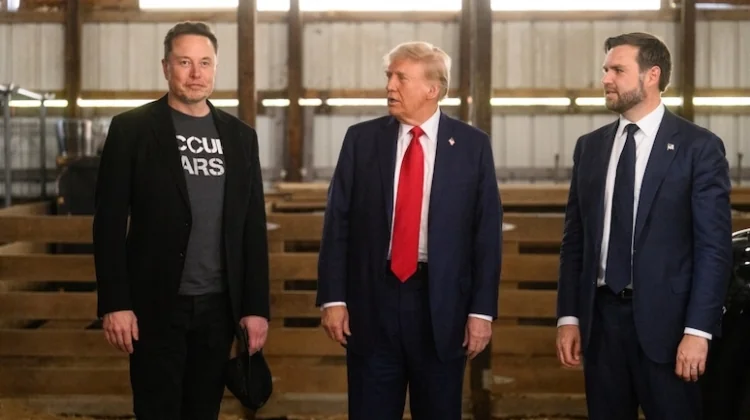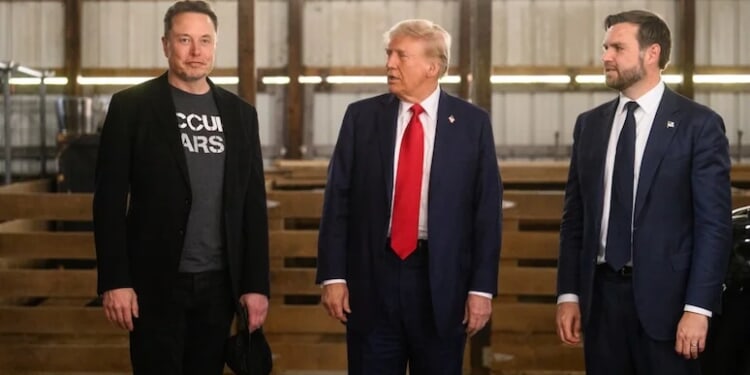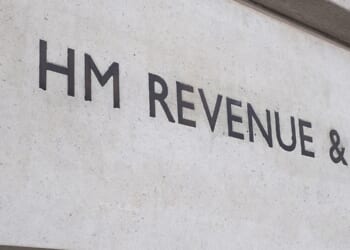
Order Michael Finch’s new book, A Time to Stand: HERE. Prof. Jason Hill calls it “an aesthetic and political tour de force.”
Sign up to attend Michael’s talk in Los Angeles on Thursday, November 20: HERE.
On February 14, in a high-profile speech given at the Munich Security Conference, America’s newly installed Vice President, J.D. Vance, expressed concern about the decline of free speech in the United Kingdom. Citing the case of a man who’d been fined thousands of pounds for praying silently near an abortion clinic, he pointed out that such actions were being increasingly punished in the UK – not just with fines but, not infrequently, with imprisonment. In Britain, said Vance, “free speech is, I fear, in retreat.” If anything, he understated the extent of the problem. But at Westminster, at BBC headquarters, and in capitals throughout Western Europe, his speech was treated as an outrageous attack. The BBC called it “shocking” and “weird” and “extraordinarily poorly judged.” It was, pronounced German Defence Minister Boris Pistorius, “not acceptable.”
Not long before Vance’s speech, Elon Musk had begun making similar criticisms. In a January 2 article, the BBC’s Mike Wendling quoted him as saying on X that civil war was “inevitable” in the UK, that the country was “going full Stalin,” and that the British people had “had enough of a tyrannical police state.” Musk, declared the BBC, “has caused anger by calling for the release of Tommy Robinson” – a longtime target of government lawfare because he’d exposed Muslim rape gangs – “and accusing Keir Starmer of failing to prosecute child rapists in Oldham in Greater Manchester.” Wendling professed not to understand Musk’s concerns: his headline was “Elon Musk’s curious fixation with Britain,” and in his article he asked: “Why has Musk’s relationship with America’s closest ally apparently soured?” – as if the UK’s see-no-evil approach to Muslim rapists weren’t reason enough. Over the ensuing months, Musk took to X frequently to champion Tommy, whose legal bills he had begun to pay; when, on September 13, Musk addressed Tommy’s massive “Unite the Kingdom” rally in London via live video link, critics wondered whether his tough words about the loss of British liberty had violated the law. And thereby confirmed his point.
President Trump, too, has spent much of the last year weighing in on free speech in Britain. After the comedy writer Graham Lineham was arrested at Heathrow for posting on X a sarcastic comment about trans people, Trump called it “sad” and “not a good thing,” adding that “in terms of U.K., strange things are happening over there.” One of the “strange things,” needless to say, is that while truth-telling about Islam and transgender ideology is severely punishable in Britain, the taxpayer-funded BBC has for years been lying about those very subjects. Until recently the Corporation had gotten away with it, but then, earlier this month, Trump – citing an edit on the BBC’s Panorama series that utterly reversed the meaning of comments he’d delivered on January 6, 2021 – threatened a multibillion-dollar lawsuit if he didn’t receive a full apology and appropriate compensation. An apology of sorts was finally issued on November 14, but the next day Trump made it clear that he still intended to sue. After Trump’s initial threat, the BBC’s director general, Tim Davie, and its head of news, Deborah Furness, promptly resigned under pressure (while denying BBC bias); and although leading Labour politicians dismissed Trump’s complaints, many Brits.cheered them as evidence that it’s high time for the chronically slanted BBC to be shuttered, or at least privatized. Indeed, even as talking heads on the BBC, ITV, and Channel 4 have called free-speech restrictions a conspiracy theory, podcasters like Peter Whittle, Carl Benjamin, and Dan Wootton have praised Trump, Vance, and Musk – arguably the planet’s top movers and shakers – for drawing worldwide attention to their own concerns, as did former PM Liz Truss, who said: “They’ve lied, they’ve cheated, they’ve fiddled with footage.”
All of which raises a question. America came to the rescue of Britain in two world wars. Will it now be America’s task to save Britain from itself?
Which, in turn, raises another question. Why should it take Americans to save Britain? Why can’t Britons save themselves? A big part of the answer is clear. Brits, especially of the middle- and upper-class variety, tend not to care for unpleasantness, or for displays of emotion. They dislike friction. “MPs and the Westminster media,” tweeted commentator Connor Tomlinson on November 10, avoid discussing the Islamization of Britain “because it makes for impolite dinner party conversation.” As for middle-class types, they can be very easily cowed: if a police officer says that the Union Jack outside their house is causing social tensions, most of them will take it down in a trice while stammering apologies. For years, in short, Brits have been quietly surrendering their country to Muslims for fear of committing a social faux pas.
In that sense, they couldn’t be more different from most Americans – which makes sense, since the Brits who crossed the Atlantic when that was an exceedingly precarious proposition spawned a new breed of men and women who believed fiercely in government by the people and who, though remarkably polite and friendly, were loath to take orders from anybody – whereas Brits today are descended from the folks who stayed behind, embracing the insidious class system and allowing their purported betters to run their country. To be sure, many working–class Brits have been making noise for some time now about the direction that the U.K. has taken. In recent months, a number of their middle-class countrymen – having been pushed so far as to finally notice that something is rattling their teacups – have participated in rallies and marches such as “Unite the Kingdom.” And the examples of Trump, Vance, and Musk are making a difference. For Brits who’ve had it up to here with the BBC, for example, Trump’s assault on the Beeb has demonstrated the power of bold action. Similarly, Musk’s high-profile support of Tommy has put backbone into Brits who’d quietly admired the lad from Luton but hadn’t dared to say so.
Increasingly, then, Brits are standing up and speaking out. But they’ve waited so long, and let things go so far, that it may well be too late to turn the ship around. Consider this: the other day, Wootton aired excerpts from an undercover video in which a Birmingham audience – which included no women and no white people (except for Labour MP Jeremy Corbyn, who earlier this year formed a new party, the Independent Alliance, with four Muslim MPs) – lustily applauded Iqbal Mohamed, a Member of Parliament, as he called for the Muslim takeover of “the whole of Birmingham, the whole of the West Midlands, the whole of Britain.” Then there’s Adil Ray, OBE, a host of ITV’s Good Morning, Britain, who on the morning after New York’s mayoral election tweeted that if the mayor-elect, Zohran Mamdani, implemented sharia law in the city it wouldn’t be a bad thing, given that “[t]he heart of Sharia is social justice, welfare, fairness, charity and cohesion.” This same Adil Ray was present when 101-year-old World War II veteran Alec Penstone was invited on Good Morning, Britain to discuss Remembrance Sunday and surprised both Ray and his co-host by saying that while he and his comrades-in-arms had put their lives on the line for British liberty, the state of freedom in Britain today is “worse than when I fought for it.” The hosts’ response was unsurprising: obviously taken aback, they scrambled to change the subject and treated the war hero like an addled child.
What British leaders are doing to the UK is not unlike what the Biden Administration tried to do to America: they’re curbing free speech, welcoming criminal aliens into their country, and treating those aliens better than natives. But since the start of Trump’s second term, the contrast between the U.S. and UK has widened rapidly. Whereas Trump closed the Mexican border within days, aggressive draft-age men – men with no gratitude, no manners, and an extraordinary feeling of entitlement – have kept pouring into the UK. They look increasingly like an army of occupation. Although the British establishment mockingly dismisses as a conspiracy theory any talk of a “Great Replacement” – the notion, that is, that European governments seek to replace their native populations with Muslims – it’s impossible to see what’s happening in Britain as anything other than the consequence of a deliberate plan to replace Britons with foreigners.
Naturally, if you dare to say so, they’ll shout “Islamophobia” and “racism.” They warn that you’re causing “division between communities” – and in today’s Britain there’s nothing worse than causing division. And remember: when the goal is to prevent division at all costs, no action is too extreme, including the imprisonment of decent people for uttering unpleasant truths. But of course the “community” with which British authorities are most concerned isn’t a community at all. It’s a fifth column – a cohort of enemies within whom politicians, journalists, academics, civil servants, and police officers have been at pains, ever since the Blair era, to coddle and appease, providing them with steady incomes in a time of economic crisis, giving them homes in the midst of a severe housing shortage, and encouraging them to wave their native flags even as ethnic Britons are ordered to put away the Union Jack.
“The sheer sense of dread and misery that hangs over the U.K. right now,” lamented commentator Paul Joseph Watson on November 11, “is like nothing in my living memory….Everyone I know is seriously considering leaving.” It’s a nation in which, if you want to break people’s hearts, all you have to do is show them a picture of the high street of a British city in, say, 1950. Granted, Brits experienced great financial hardship during the years after World War II, but they also had freedom and security – and pride. That pre-Islamic Britain seems like a lost land of hope and glory. Is it possible that a few highly influential Americans can play a major role in keeping our cousins across the pond from going full-on caliphate? Granted, Americans should always prioritize America, which has its own share of enemies within. But let’s face it: if, even as they focus on making America great again, relentless pressure from the likes of Trump, Vance, and Musk can contribute to the salvation of the UK – not only by giving speeches, filing lawsuits, paying for defense attorneys, and applying pressure, but also by providing freedom-loving Brits with desperately needed role models – more power to them. After all, Britain needs all the help it can get.

















